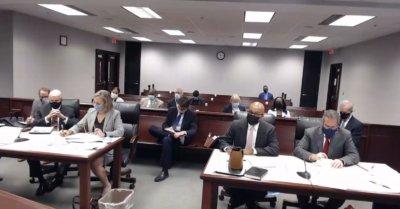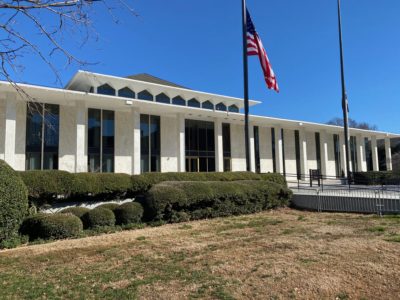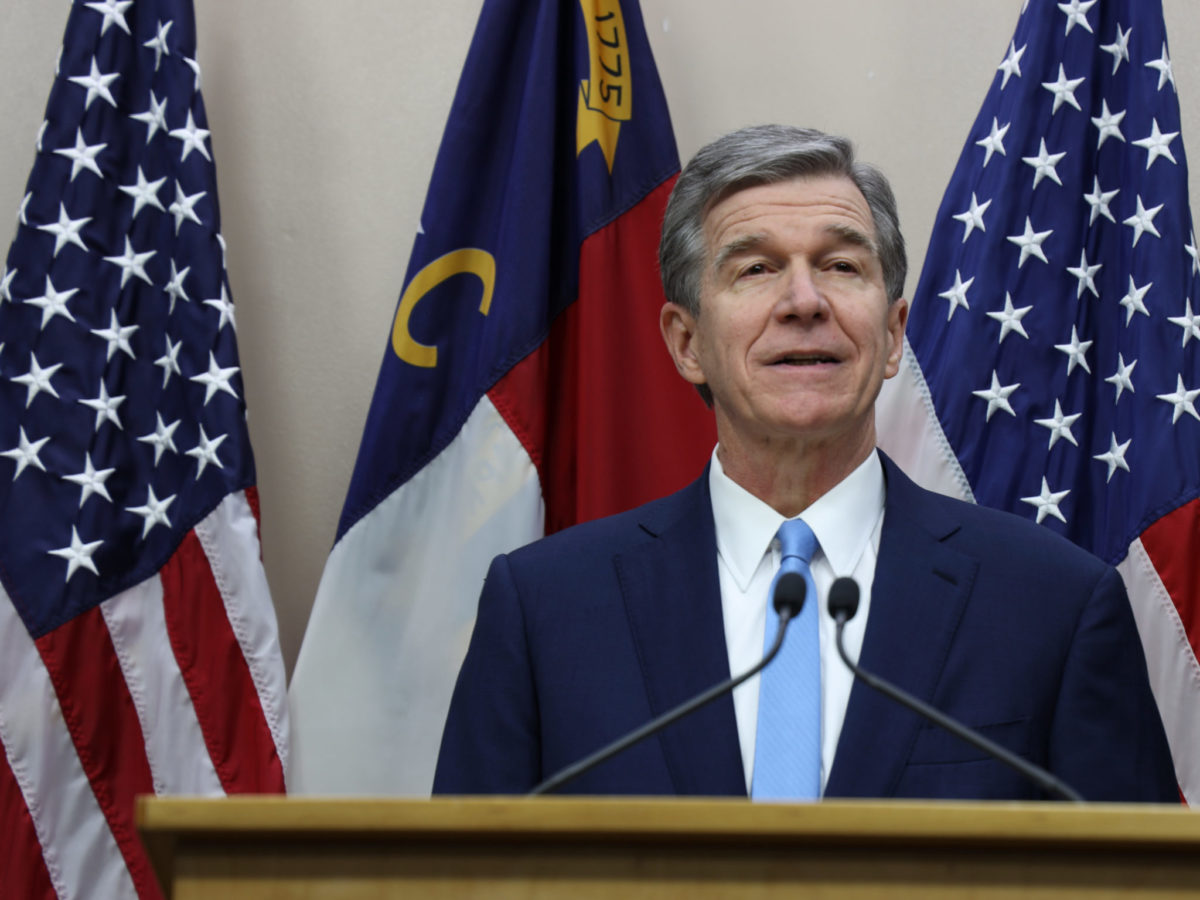
|
|
Update at 3:33 p.m., November 18, 2021: Governor Roy Cooper signed the biennium budget into law. Here is what he said in an emailed statement:
“This budget moves North Carolina forward in important ways. Funding for high speed internet, our universities and community colleges, clean air and drinking water and desperately needed pay increases for teachers and state employees are all critical for our state to emerge from this pandemic stronger than ever. I will continue to fight for progress where this budget falls short but believe that, on balance, it is an important step in the right direction.”
Update at 10:38 p.m., November 18, 2021: The House passed the budget bill in a final vote of 104- 10. House Speaker Tim Moore, R-Cleveland said in a press release:
“For the first time since 2018, North Carolina will finally have comprehensive state budget. This is an historic day for our state and a great day for all North Carolina.”
Update at 6:14 p.m., November 17, 2021: The House passed the budget bill in the first of two votes 104-10. The final vote will be tomorrow, and then the bill goes on to the governor.
Update at 3:07 p.m., November 17, 2021: The budget bill passed its final vote in the Senate 41-7. It goes now to the House.
For the first time since 2018, the state may be on its way to having a budget. The Senate gave preliminary approval to a two-year spending plan with a vote of 40-8 today. The no votes were all Democrats. The Senate will have a second and final vote tomorrow before the budget goes before the House.
At the same time that the Senate was scheduled to gavel in, Democratic Gov. Roy Cooper held a press conference in which he said that he would sign the budget despite having some misgivings.
“However imperfect this budget is, our schools, our communities, our small businesses, our families need help right now,” he said, “especially as we recover from the pandemic.”
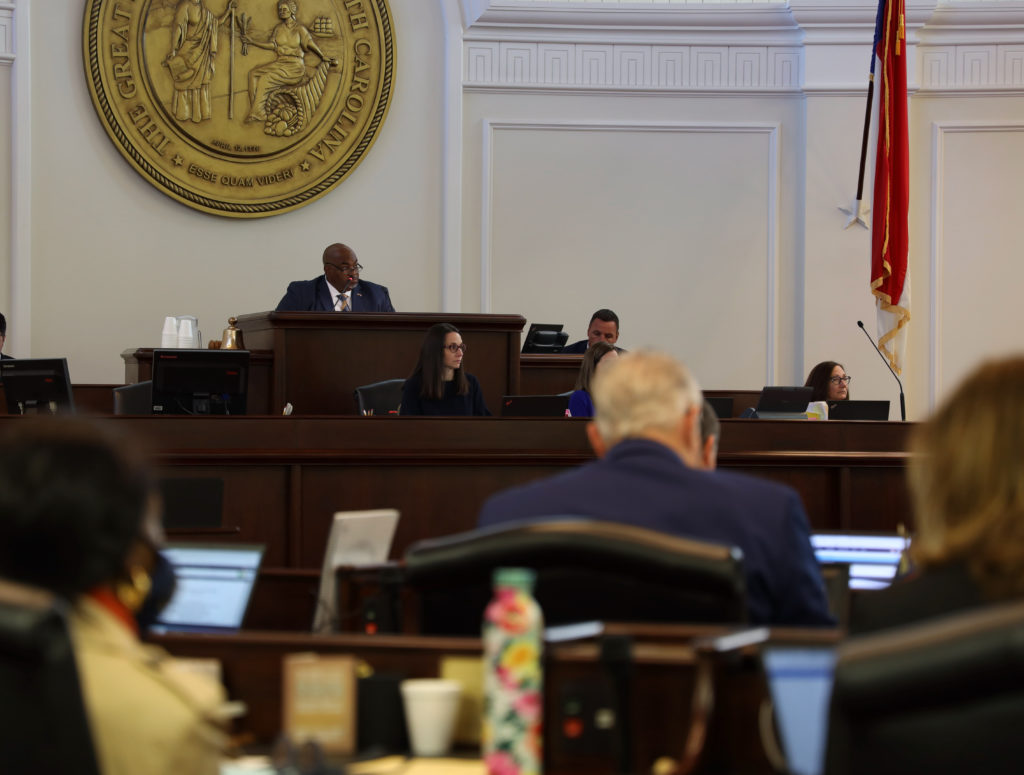
Legislative Republicans and Cooper have been negotiating for months over the budget in an attempt to forestall another stalemate. In 2019, Cooper vetoed the legislature’s two-year spending plan and lawmakers were unable to override his decision. There hasn’t been a new budget since.
Ultimately, Cooper said in a tweet last week that the two sides were unable to come to an agreement on this budget and that lawmakers told him they would move ahead with a bill that included “a number of the Governor’s priorities.”
The budget compromise includes an average 5% pay increase for teachers over two years — 1.3% across the board in both years and then step increases for eligible teachers. There are also $2,800 in bonuses for most teachers and $100 million for local teacher supplements that Pat Ryan, spokesperson for Senate President Pro Tempore Phil Berger, R-Rockingham, said was part of $125 million in additional education funding Cooper was pushing for. Ryan said, however, that it was Berger who came up with how to spend the $100 million.
Cooper said at the press conference this afternoon that he was worried that if he vetoed the budget, lawmakers would walk away from the negotiating table without coming up with an alternative spending plan. He went on to say that his ability to veto legislation — with the backing of legislative Democrats to avoid an override — has been a net positive for the state.
“I will continue to use it (the veto) when I believe a bill causes more harm than good,” he said.
Read Cooper’s full remarks here.
The article below goes more in depth on what’s in the budget.
What happened on the Senate floor?
On the Senate floor today, there was little debate. Senate Democratic Leader Dan Blue, D-Wake, said he was disappointed by the budget but that it had a lot of good.
“I had higher hopes for the budget, both the process and the final result,” he said during a floor speech. “We could do better than this, but a lot has been accomplished in this budget.”
He said that he would have no problem voting for the bill except for one thing: the $100 million in funds to help districts supplement teacher pay. Specifically, Blue has a problem with who isn’t getting money under the plan.
Many districts offer supplemental salaries to what the state provides for teachers, but districts without a large property tax base often can offer very little or nothing, meaning that richer districts are able to siphon off talent.
Sign up for the EdWeekly, a Friday roundup of the most important education news of the week.
Under the budget, every district in the state would get funding to buttress the pay of their local teaching force — except five urban counties, who won’t get any of that money: Wake, Durham, Guilford, Mecklenburg, and Buncombe.
Blue said that the exclusion seemed designed to target districts with high Democratic representation. He also said that just because a district is large and wealthier doesn’t mean it is without low-income students.
He pointed out that Wake County, which he represents, has more than 170,000 people living below poverty level.
“You can’t just say that because you live in one of these urban counties, everybody is moving along just fine,” he said. Later he added that he didn’t think the exclusion was “necessarily the end of the world.”
“This one thing just irks the you-know-what out of me,” he said.
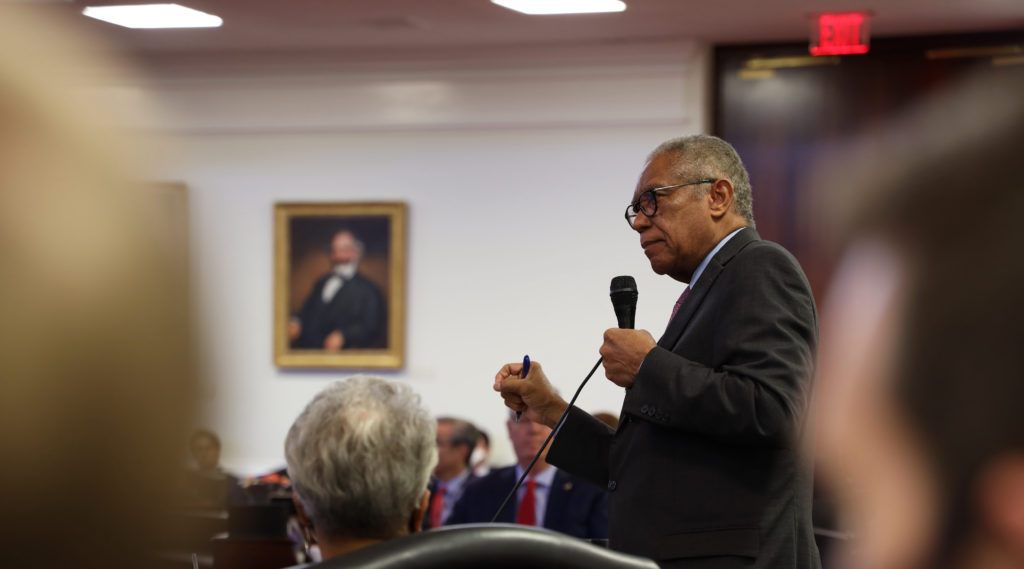
Berger responded to Blue on the floor, saying that he was wrong about the motivation of Republicans. He said that the point of the supplement and its distribution was to make sure that every student has a “high-quality, good teacher in the classroom.”
“For years, we have been told that our low-wealth and our rural counties have trouble competing with the urban counties,” he said, adding later: “Far from punishing counties being a reason for this, enhancing the ability of our rural areas to attract and keep good educators is the primary motivation, and it is the best $100 million that we are spending in this budget.”
In an email prior to the budget vote, staff from Berger’s office explained the formula behind the distribution of supplemental money to districts. According to the email, 65% of the formula is based on the county tax base, 25% on the county’s median household income, and 10% on the county’s effective tax rate.
The email also listed what local supplement amounts the five excluded districts are able to provide their teachers with their own local funds:
- Buncombe: $7,299
- Durham: $7,009
- Guilford: $4,927
- Mecklenburg: $8,773
- Wake: $8,873
In the email, Berger staff compared those numbers with what some lower-wealth rural districts are able to provide as a supplement to their teachers using their own funds:
- Alleghany: $500
- Ashe: $600
- Caswell: $0
- Clay: $24
- Graham: $0
During the press conference with Cooper, he was asked about the exclusion of the five counties.
“It’s not the way I would have written, and I think all counties need to be part of that process,” Cooper said.
Other reactions
Republican State Superintendent Catherine Truitt released a statement on the budget this afternoon.
“I appreciate the General Assembly’s efforts to craft a budget that puts us on a path towards much needed stability and allows for us to continue investing in our students, our education leaders, and our school districts,” she said in the statement. “I look forward to Governor Cooper signing this into law and appreciate his recognition of how this budget supports students, small businesses and taxpayers across North Carolina.”
She said the budget includes many items that she has been advocating for.
Organizations such as the North Carolina Justice Center, however, joined groups like the North Carolina Association of Educators in saying that the budget wasn’t enough.
“The conference report has deep income tax cuts that will benefit the wealthy and profitable corporations, costing the state more than $5 billion annually in revenue when fully in effect. It won’t provide people with affordable health care or fund the constitutional obligation the state has to provide a sound, basic education to every child,” an email from the group said.
The email, which went out prior to the initial Senate vote, urged lawmakers to vote no to the budget. Its reference to the constitutional obligation of a sound, basic education is an allusion to the long-running Leandro case.
Just last week, the judge in the Leandro case, David Lee, ordered the state to turn over about $1.7 billion to fund the next two years of a plan aimed at ensuring students their constitutional right of access to a sound basic education. Initial budget proposals from the Senate and the House only funded a fraction of that plan, and Cooper said in his press conference that while this compromise budget was better on Leandro, it still missed the mark. It’s unclear what will happen next in the Leandro case, but you can read more about it here.
Every Child NC, a coalition of organizations pushing for funding of the Leandro comprehensive plan, released a statement critical of the budget today.
“The long-awaited conference budget proposal is unconstitutional and should be rejected by lawmakers who take seriously their oath of office,” the statement reads in part.
The North Carolina Early Childhood Coalition also released a statement today, saying it was disappointed in the budget, particularly because there isn’t funding for early childhood educators.
“Although there are some bright spots, the Conference Budget released on November 15th represents a missed opportunity for North Carolina’s young children, their families, their educators, and their communities,” the statement read.
Recommended reading
